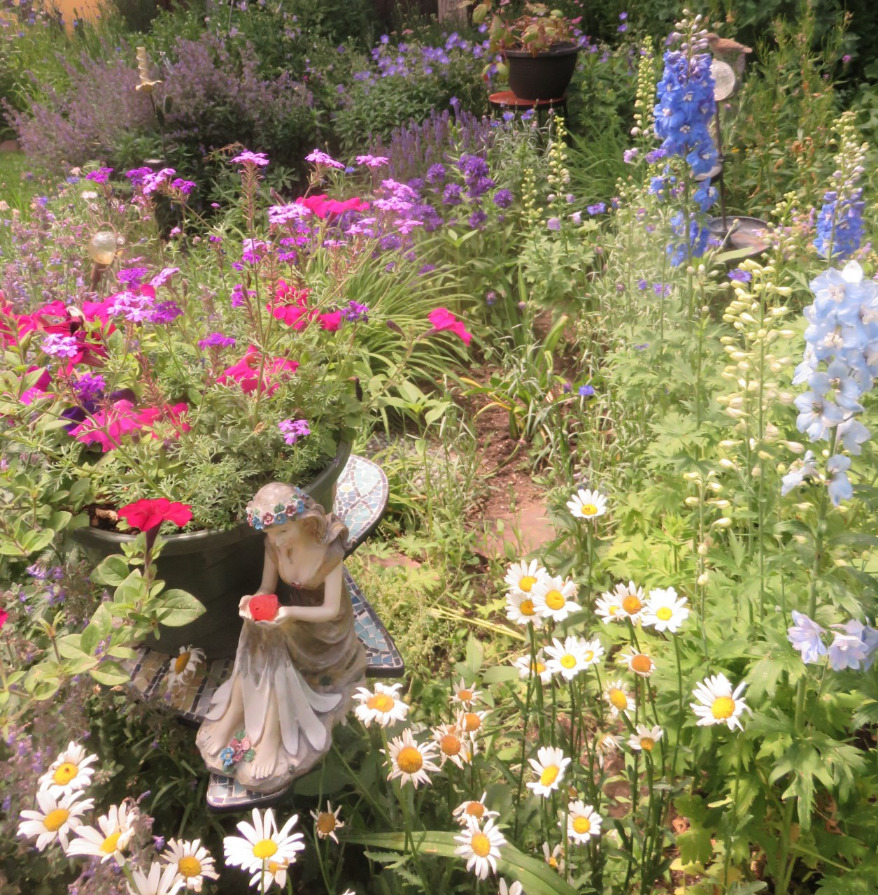Back in 1999, when author Stephen King was severely injured in a pedestrian/vehicle accident, a young man at the library where I work commented, “Maybe now he’ll have to stay at his desk and write books faster”. Not only did I find his comment incredibly insensitive, I also found it naïve. Just because King didn’t suffer a brain injury didn’t mean his creative spirit was unaffected by the physical trauma he endured.
King started writing again five weeks after his accident and produced a memoir, a screenplay and an 800-page novel within the next year. But three years later, King announced he was going to retire. I can’t help but think his decision at that time was related to creative fatigue caused by his accident. Being creative requires physical energy, and when our bodies are seriously taxed, we are less likely to have the energy to spare for writing.
I had my hip joint replaced in early summer, and for a month I was unable to write. I would think about my story and characters and nothing would happen. They were frozen in place, as static and flat as cardboard cutouts. The creative part of my brain didn’t seem to work, as if someone had turned off the switch. It appeared that my body was using all its resources to heal, and had nothing left for non-essential activities like plotting, writing scenes and bringing characters to life. Thankfully, my creativity has gradually returned, directly paralleling the restoration of my physical energy. But it has been a slow process. And a good reminder how my body and mind are connected.
Writing can be a great escape from our ordinary lives and the joy of it can feed our spirits and energize us. But the process can go the other way as well. Stress and traumatic events can suck all the creative energy out of us and make us unable to write. This happens at least in part because stress and trauma are exhausting. When we’re exhausted, our bodies focus on survival, leaving very little for being creative.
There are lots of times when I feel like I don’t have time for exercise. I have a day job, household responsibilities, a garden that takes a lot of effort in this arid climate, along with (for me) ambitious book deadlines. But I need to remember that exercise can boost my creativity.
By reducing stress, exercise increases our physical energy and mental efficiency. Studies have also shown that physical activity helps keep the brain healthy and reduces the risk of dementia. Conversely, physical decline such as a slower walking pace and diminished balance can be early signs of mental decline.
The obvious lesson here is that if we want to be productive and effective writers, we need to take care of our bodies. To follow the oft-repeated advice to exercise, eat healthily and get enough sleep. Not just for our physical health but our creative health as well.
And I would add another thing, which we often forget in our modern world, and that is, staying in touch with nature. Immersed as we are in our artificial, digital “reality”, we are still physical creatures who evolved as part of the natural world, and for most of us, being around nature feeds our spirit, calms and soothes us. Simply looking at nature seems to be good for our brains. It’s hard not to wonder if at least part of the angst and anger and dissatisfaction all around us is caused by a disconnect from the natural world, even if we are unaware of what is happening.
I have found that no matter how anxious or angry I am, if I work in my garden, spend time in my backyard, or go up to the mountains and go hiking, a lot of those negative feelings flow away. It also helps me go into that creative zone. That daydreaming state where story ideas emerge and my characters come to life and talk to me.
I always envy runners, because watching them makes me think that running would be a good way to reach that calm, floaty zone where the imagination is set free. But when I have tried to reach this state by running, after the first hundred yards or so, my body reminds me how much it hates this form of exercise. I never get past the struggle to reach a positive state of mind. And so, for exercise, I dance in my basement, energized by music and my body’s natural reaction to it. The music makes me want to move and hence that movement is not a struggle but a release.
We all need something like that, a way to get back into our bodies. To connect with them and remember that we were physical creatures first, before we became cerebral ones. Now, more than ever, as we spend hours staring at screens, lost in an artificial digital realm, we need to remember that the real world is out there, all around us. And we are a part of it. We need to connect to it, honor and protect it. In turn, it will nurture us and make us more productive writers.


Terrific article. I’m still recovering from a concussion after 6- months and I’ve found the mind-body duality is gone, it’s all one organic system. Maybe these injuries serve to take us back to who we are and how we function in the purest sense. So far, walking in nature has been my best healing remedy.
I’m sorry hear of your health issues, Sue. A concussion sounds much harder to come back from compared to surgery. I’m glad that walking and nature are helping you. Best wishes for a speedy recovery.